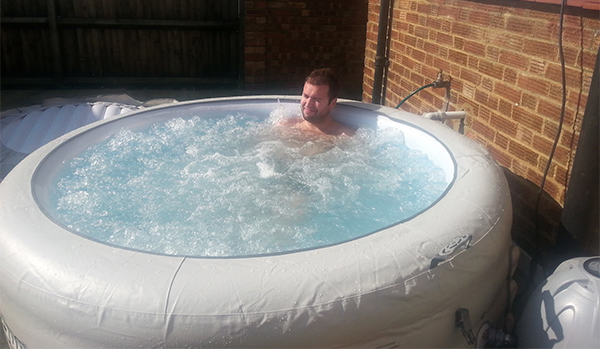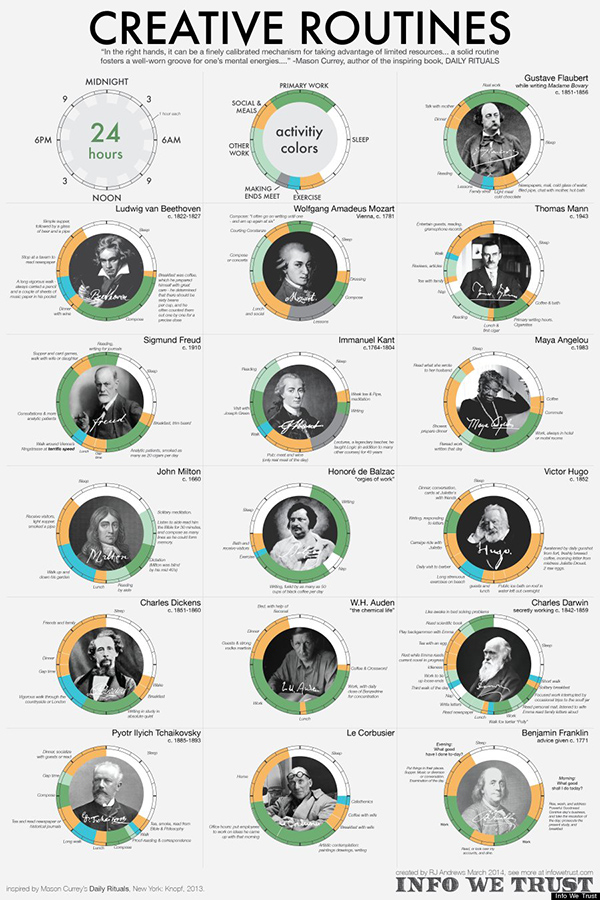I just read a blog post from Mark Rofe, fellow Internet Marketer and creator of the ingenius Wank Sock, who has just made the decision to return to work.
It’s an interesting topic.
(Although I bet you’re now thinking about wank socks).
Is the 9-5 really such a bad thing?
Is there a time to forget the false paradise of working from home happily ever after?
I think Mark has made the right decision based on it being his career, his life, his happiness. Nothing more and nothing less.
There’s a small subset of the Internet Marketing community that believes you have to be earning big bucks from home whilst trolling the working class, or you’re doing it wrong.
There’s an even larger subset of the population that believes this myth before trying it for a single day.
Let’s forget about what goes in to running a successful business.
You can do this from home, from work, from a beach, or from a park bench.
Is working from home for everybody?
No, no and NO.
I divide the Not Working From Home majority in to three subsets.
- Introverts who want to work from home.
- Extroverts who want to work from home.
- The rest of the world who doesn’t want to work from home.
Why introverts and extroverts?
I believe your natural disposition here will determine the challenges you face working on your own.
But first, everybody else.
Internet Marketers can be guilty — myself included — of viewing the world through rose-tinted glasses and thinking everybody should want to do what we do. It’s the entrepreneurship argument.
“Why wouldn’t you want to earn a fortune on your sofa? What better way to live?”
The rebuttal is Purpose.
Not everybody wants to be an entrepreneur, and many people are just fine following somebody else’s orders.
This should be a relief.
An economy full of entrepreneurs would have a lot of great ideas that never materialised.
For most Internet Marketers, purpose means maximising income whilst finding more time for pleasure. Usually from the comfort of home.
It’s a captivating pursuit for those of us who live by it.
But many people don’t.
And it’s not because we know something they don’t. They simply don’t want to.
They’ve seen what we do, they hear what we do, and still it’s not for them.
They are right.
Collectively as an industry, we should get over ourselves and appreciate that.
People will always moan about tax hikes, bills, outgoings and their financial responsibilities. It’s tempting to throw back the ‘You should have been an Internet Marketer‘ line.
Except it solves nothing and changes nothing.
That’s not what they chose to be, and their choice is always right.
The world simply cannot function with 7 billion Internet Marketers working from home.
Introvert vs. Extrovert
Now, for those who do decide to work from home, there are two distinct personality types:
Introverts:
- Very self-aware
- Thoughtful
- Enjoys understanding details
- Interested in self-knowledge and self-understanding
- Tends to keep emotions private
- Quiet and reserved in large groups or around unfamiliar people
- More sociable and gregarious around people they know well
- Learns well through observation
Extroverts:
- Warm
- Seeking novelty and excitement
- Gregariousness
- Assertive
- Cheerful
- Talkative
- Enjoys being the center of attention
- Action oriented
As with any personality type, these are generalisations. There are extroverts who keep their emotions in check, and cheerful introverts who live for novelty.
Which category are you?
There’s an easy way to tell.
Extroverts gain energy from frequent social interaction, introverts lose it.
That’s not to say that social interactions aren’t enjoyed by all.
Rather that while some extroverts will thrive on the ‘banter’ of a typical work day, an introvert will be looking pretty bruised and battered if he feels he can’t escape it anytime soon.
The Best First Day in the History of Work
The happiness (and productivity) you get from working from home is largely a combination of:
a) Your personality type
b) The environment you inflict upon it.
In Mark’s returning to work post, he touches on the sore spot that seems to have led his decision: isolation.
Nobody likes isolation. It doesn’t matter what personality type you are.
Isolation is used as a form of torture for good reason.
It eventually hurts.
But I’d argue that introverts are better equipped to deal with working in isolation.
And this is the point I’d make to any extroverted reader who wants to quit his 9-5 and work from home:
For a while… it’s going to be fucking great.
Seriously, you’re missing out on the best first day of any career in the history of Man.
But there’s a catch. Many of them.
Once you’ve cashed in the novelty of “Oh shiiiit, I’m doing work in my boxers with only empty packets of Popchips and my balls for company!”, the only way to share the grotesque image is to post it on your Facebook.
(Which many of us do, extroverted or not!)
If you need the social interaction of a thriving workplace, then the echo of your thoughts racing around an empty house will probably not suffice — not in the long run.
Staying Somewhat Sane
I am introverted by nature
I enjoy catching up with friends and meeting people who are interesting. Keyword: interesting.
I simply don’t have the capacity to enjoy being around people for shits and giggles. And I highly doubt they’d enjoy being around me. Not for any extended period of time.
I like the comfort of my own space and I protect it in the only way I know how:
By making a shit ton of money online.
Whether you are introverted or extroverted goes a long way to deciding if you will enjoy working on your own.
Yet it’s important to distinguish this question has nothing to do with running a successful business.
It’s possible to be a badass super-rich affiliate with any personality type. (Which makes it all the more baffling why so many choose to be bags of dicks.)
Knowing your own characteristics will do much for increasing your chances of happiness along the way.
My tips for extroverts:
Bear in mind, I’m not one. I could be very wrong. Please offer your own suggestions if these suck.
Consider a shared office space with like-minded professionals. There are plenty of these springing up in major cities. At the very least, get a laptop and hit the road.
Use your social wings and network, network, network. Many affiliates struggle at this, so cash in the advantage and use it to get ahead of us.
Leverage the many online communities at your disposal, become a connector and embed yourself in the industry.
Work shorter hours and join local clubs (sports or otherwise) with scheduled meets every week.
My tips for introverts:
Make sure your friends, family et all respect the boundaries of your work space and work hours. Lest you go insane.
Build a small circle of masterminds and use it as your eyes and ears. Focus on the quality of your contacts instead of quantity. A Skype group is a good start.
Work out exactly what form of social interaction wears you out the least, then arrange a lot of it. For me, this is a quiet pub and several pints. Fight, fight, fight the urge to get lazy, which is so much more of a danger to introverts.
Get a dog. Like me, you probably believe they’re better than humans.
Separate your work space from your living space. If you spend a lot of time at home, you need to disconnect part of the house from your work activities. That’s why I’ve bought a LazySpa and created a reading room with beanbags.
I highly recommend the LazySpa:

My tips for those who aren’t sure if they want to work from home:
Try it for three weekends in a row. Are you still sane?
There, probably, is your answer.
If anybody needs to fill a vacancy for a creative, hard-working individual with a lot of wank socks in his wardrobe, give Mark a call.







Saw this floating around Facebook before and it's an interesting infographic. At the end of the day I think my…